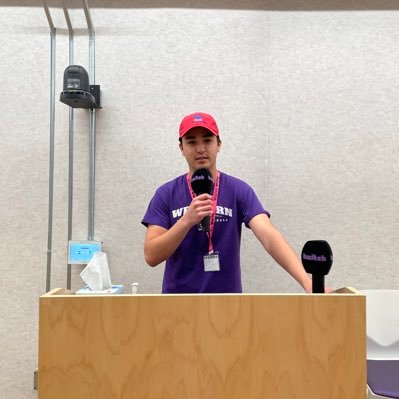- Published on
Games About Sports and 'e-athletes'
- Authors

- Name
- edstef
- @epmeddie
Introduction
I know a surprising amount of soccer facts and events. Not because I’ve ever watched a single game, not because I live in a town where soccer is big, but because my roommates play a ton of FIFA. I know that Martinelli feels good to dribble with, Haaland is easy to score with, and Messi is just OP.
New Balance's New Gaming Ambassador
When I came across the news that New Balance has a new 'gaming ambassador' I was intrigued. What would an athletics company need a gaming ambassador for, and who is SV2? After lurking his youtube and watching a couple videos, I would describe him as a soccer influencer with some entertaining content centered around the sport. Before learning this, and after reading the words “gaming ambassador” my initial thought was that he was a competitive FIFA player.

Sports Games Overlap
This got me thinking about a whole new category of talent for sponsors.
Traditionally, if you want a sports brand sponsorship you need to be a top athlete in your sport. In the digital world, it has actually become possible to become more popular than the top athletes by making good content about a sport. We see this a lot in youtube golf and I’ll use Bob Does Sports as an example . Imagine telling someone you golf for a living, and are sponsored by Callaway. Then imagine their reaction when you tell them you are a 15+ handicap. For an older generation they would think you are just lying, but in today’s world these content creators have loyal fan bases just like top athletes.
But now we are seeing a third category. They aren’t top athletes, and they don’t even play the sport? They play a video game about the sport. And that’s enough to get brands interested.
This is different from esports, where those teams and e-athletes garner their own sponsorships similar to traditional sports. Esports orgs and players get sponsored by things like: computer peripheral brands, jersey manufacturers, and energy drinks. This new category is someone who could reach soccer audiences without ever having played soccer.
There’s games about driving trucks and farming crops, but the people playing those games aren’t actually going to buy a truck or start a farm, at least not in the same capacity that people who play sports games are going to engage in the actual sport. Whether it’s watching on TV or going to a field to try it out yourself, 34% of FIFA players became professional soccer fans after playing the game and 50% became at least interested. According to this article from the times: “89% of sports video game players engage in the corresponding real-life sport”.
Using chat gpt I did some rough estimates on the number of hours kids spend playing soccer IRL and the number was around 210 million hours per year in the USA. FIFA hours comes close with 262 million hours played… in just 3 weeks. The amount of advertising time you could garner in 1 year at every soccer field in the USA would be the equivalent to just 3 weeks on FIFA.
Conclusion
It seems like games about sports have an intriguing overlap between the real-life experience and the in-game content. These games have a well-defined player base, making them an attractive target for advertisers. It makes games about sports appealing to a completely different set of advertisers in addition to the traditional gaming ones.
References
Soccer participation in USA - forsoccer.com
